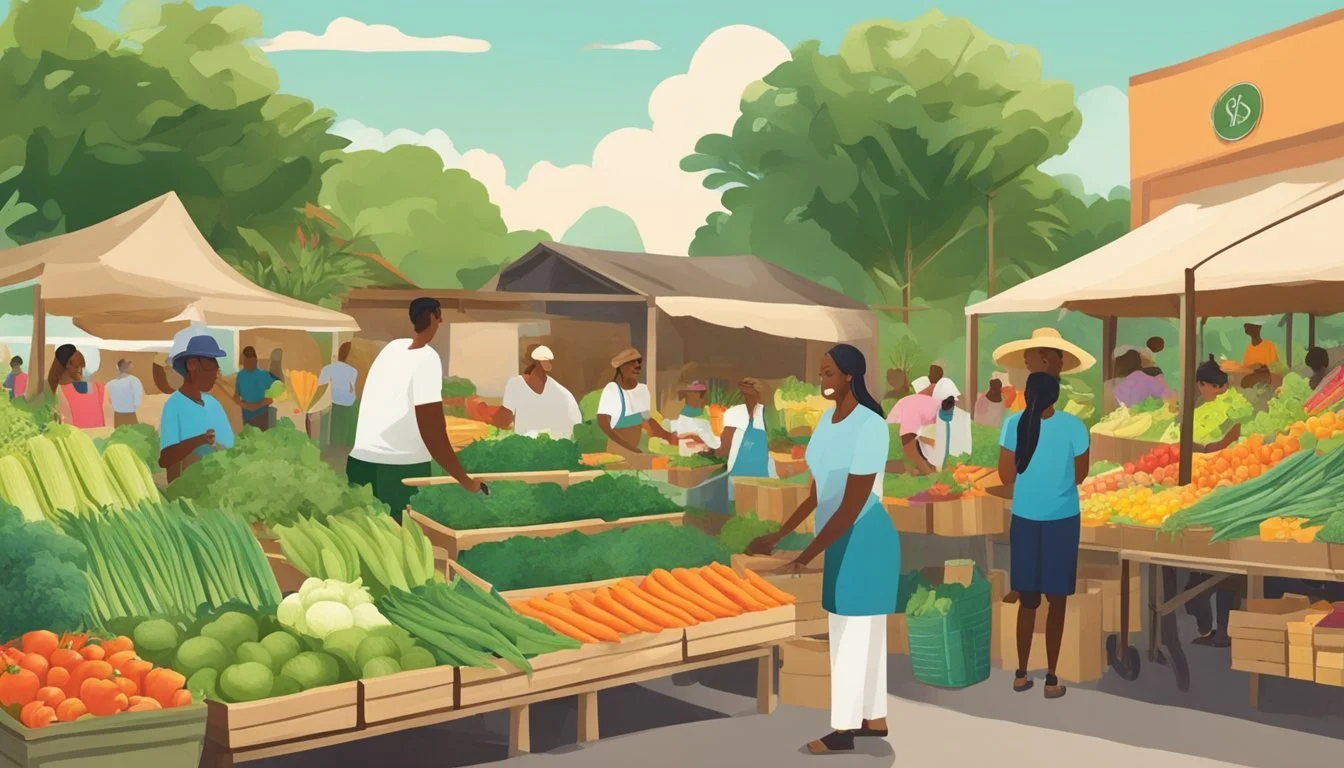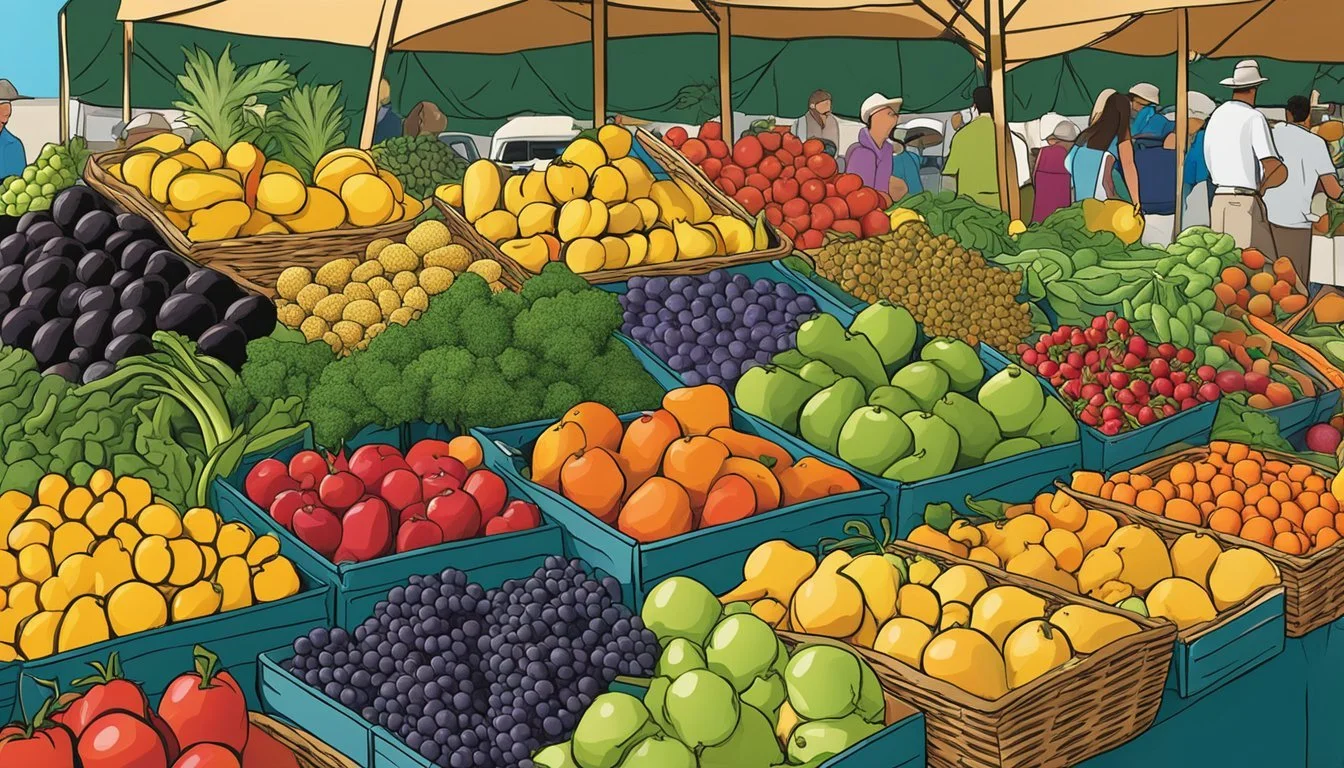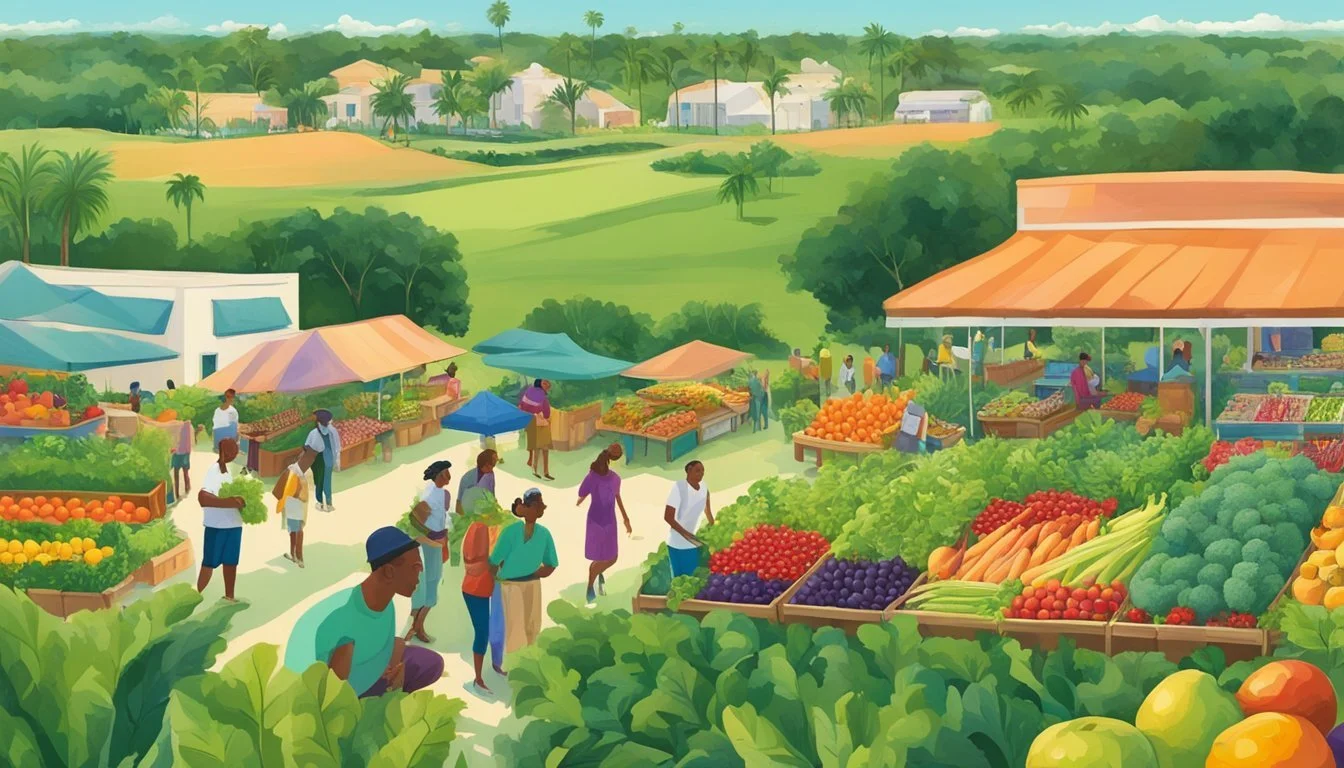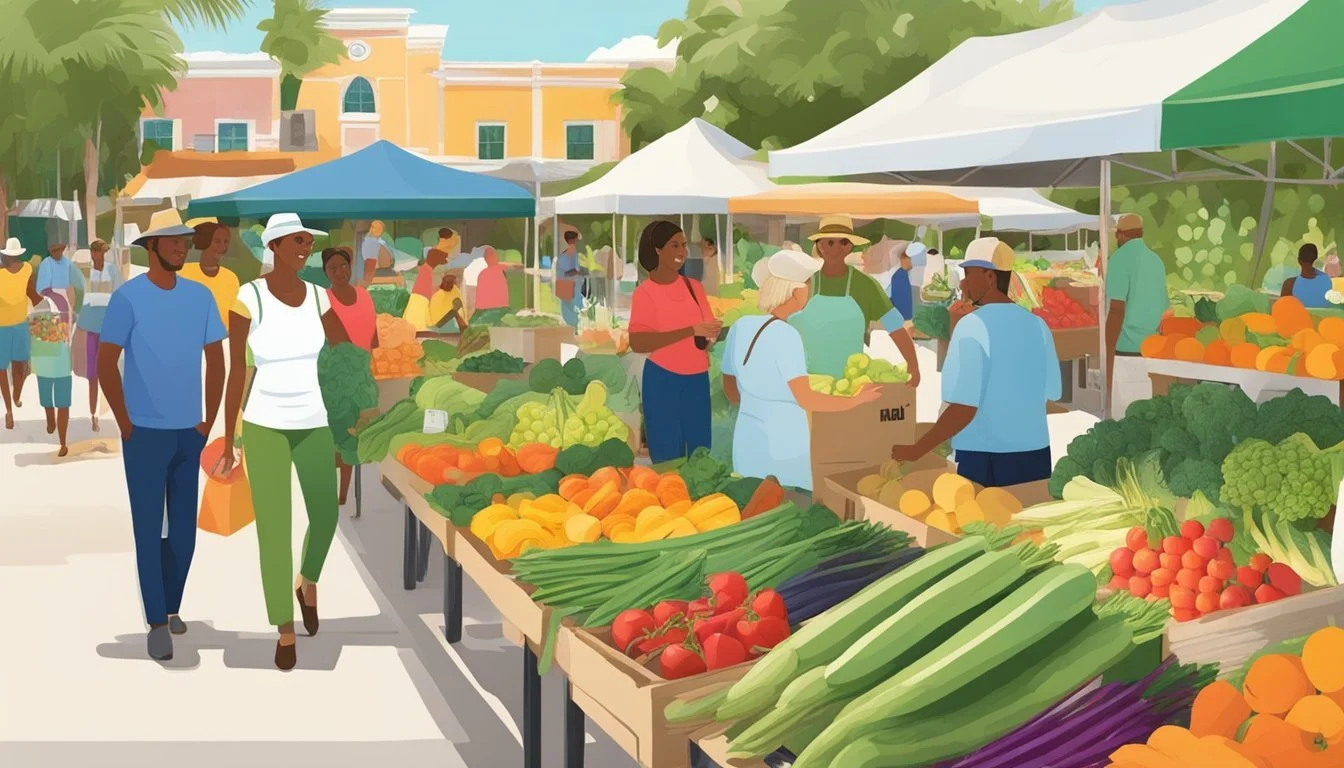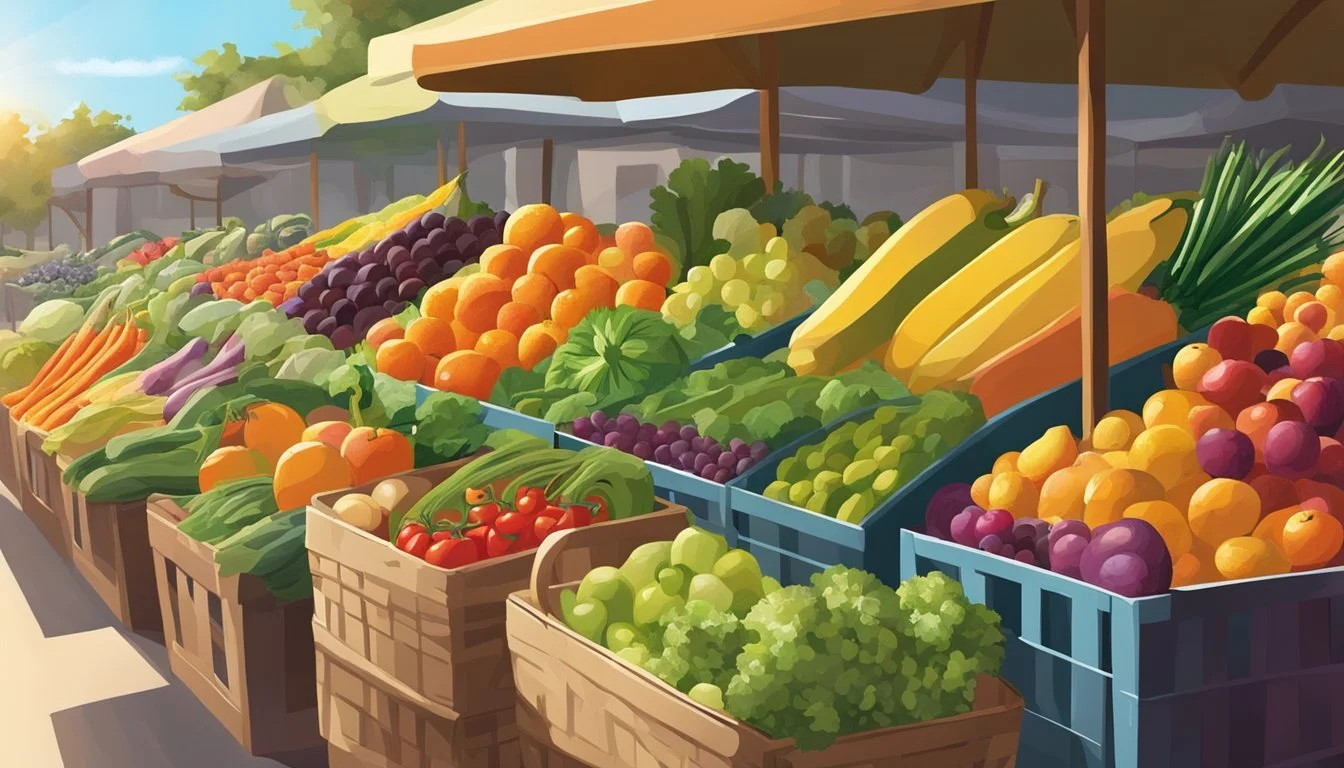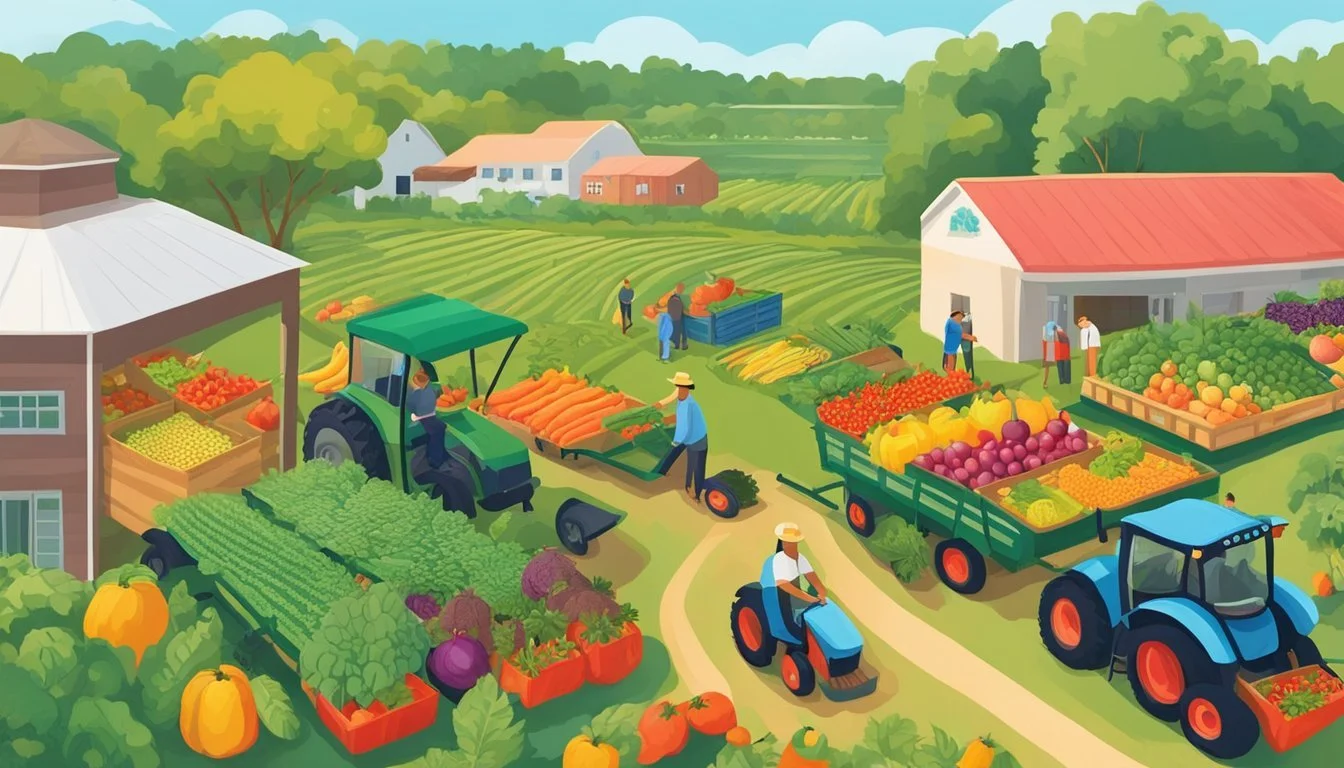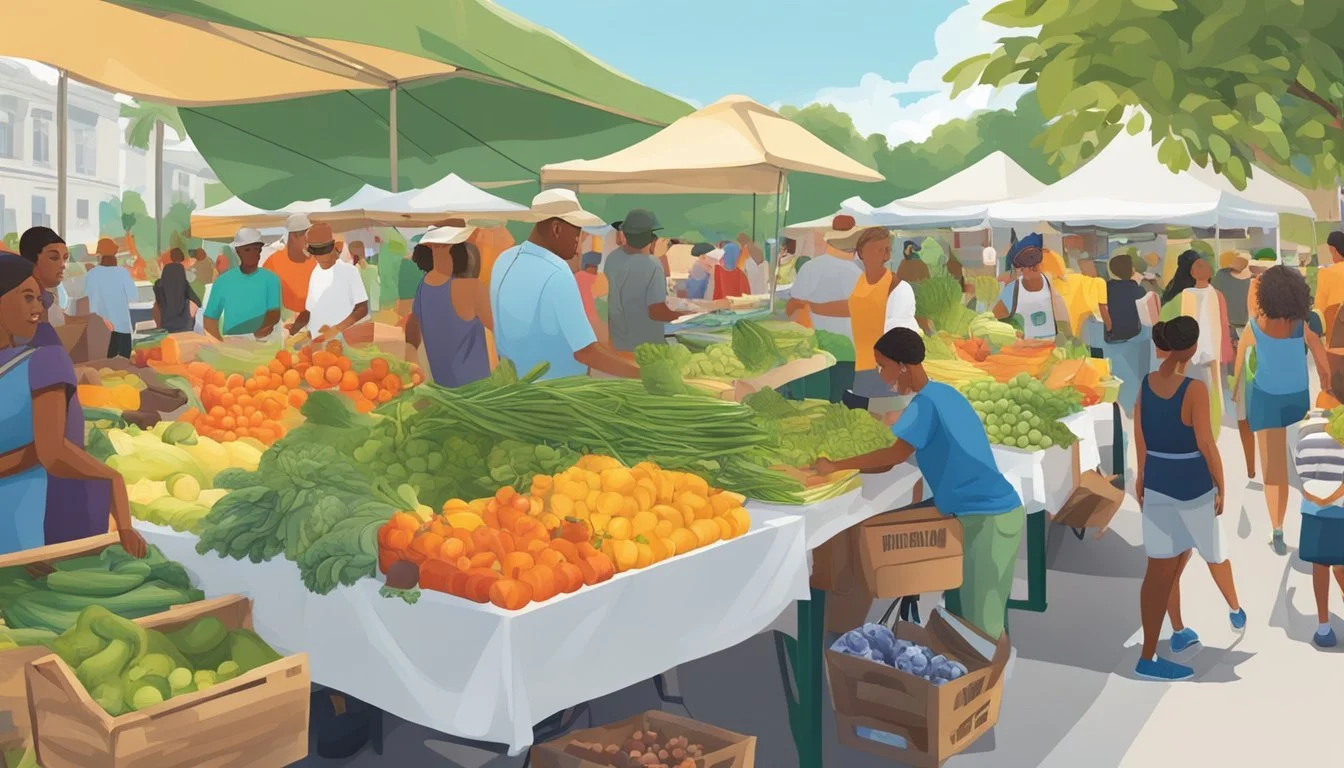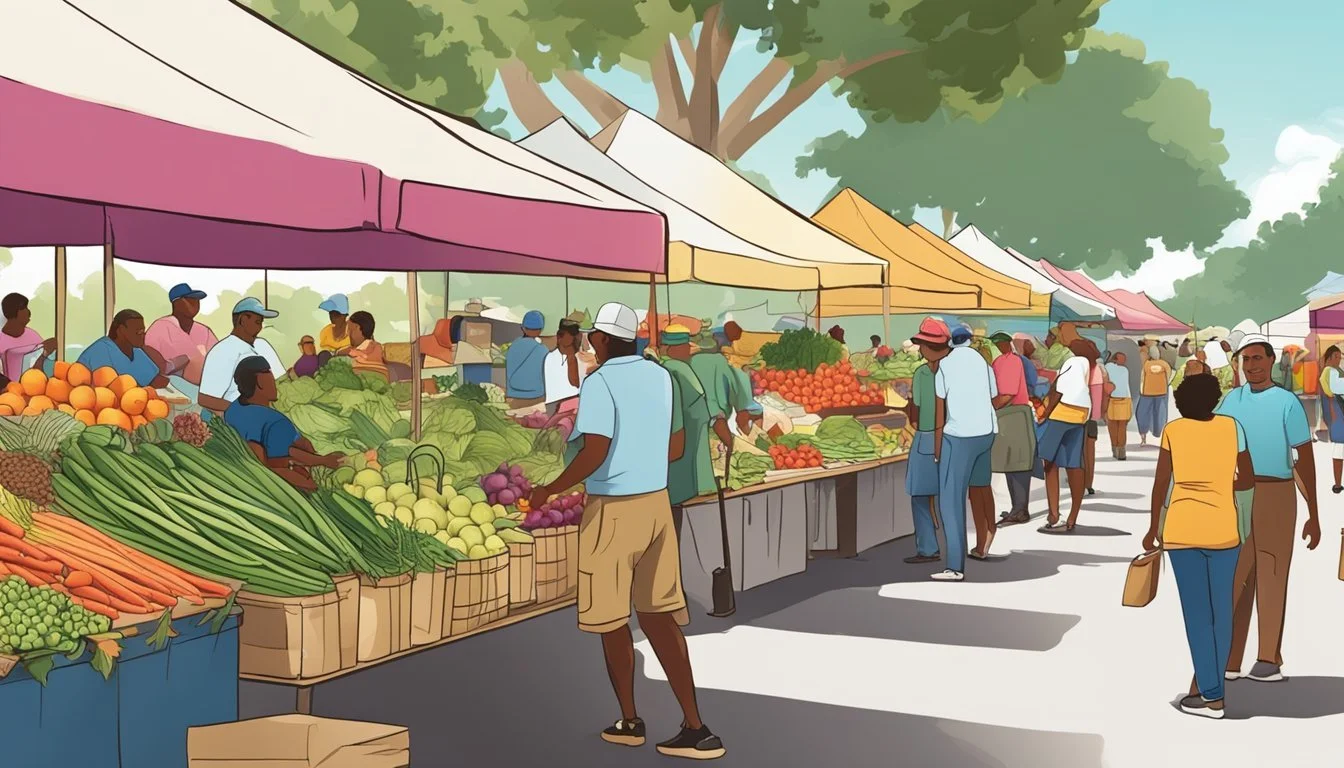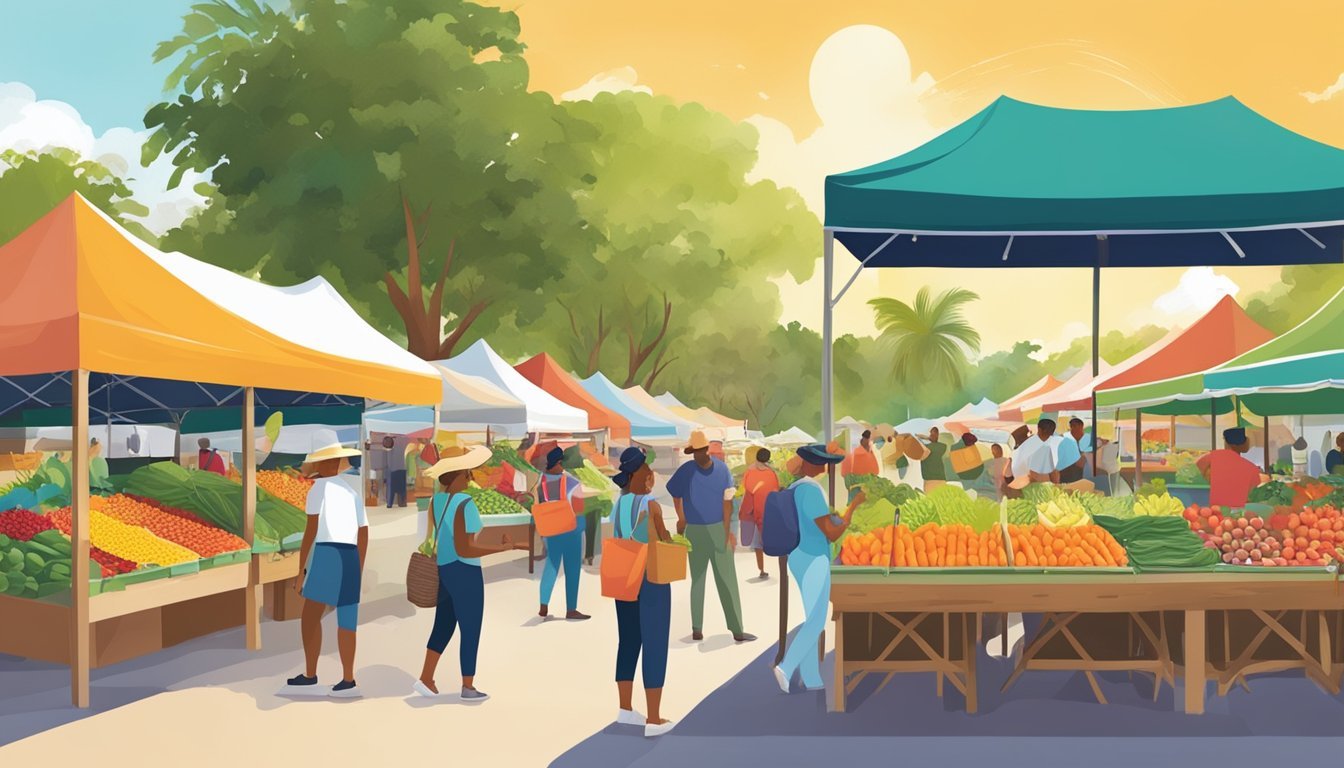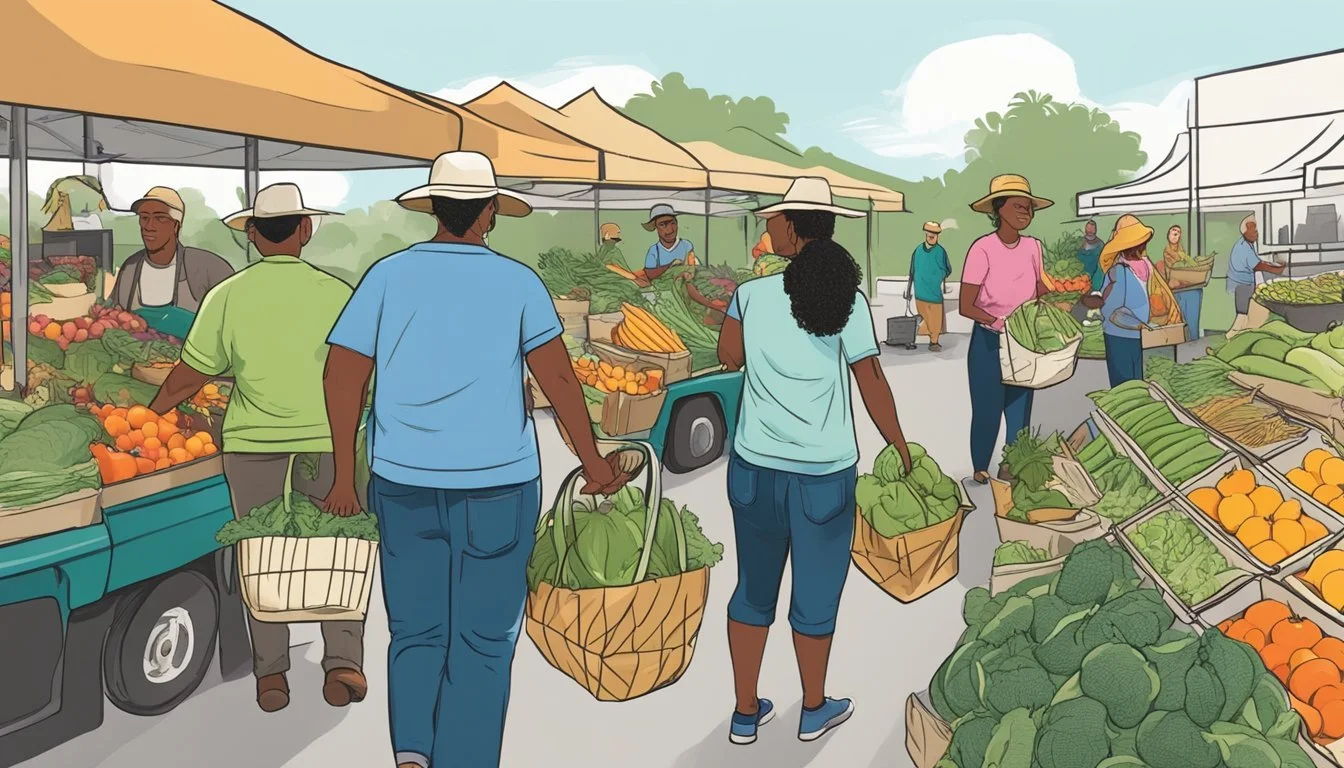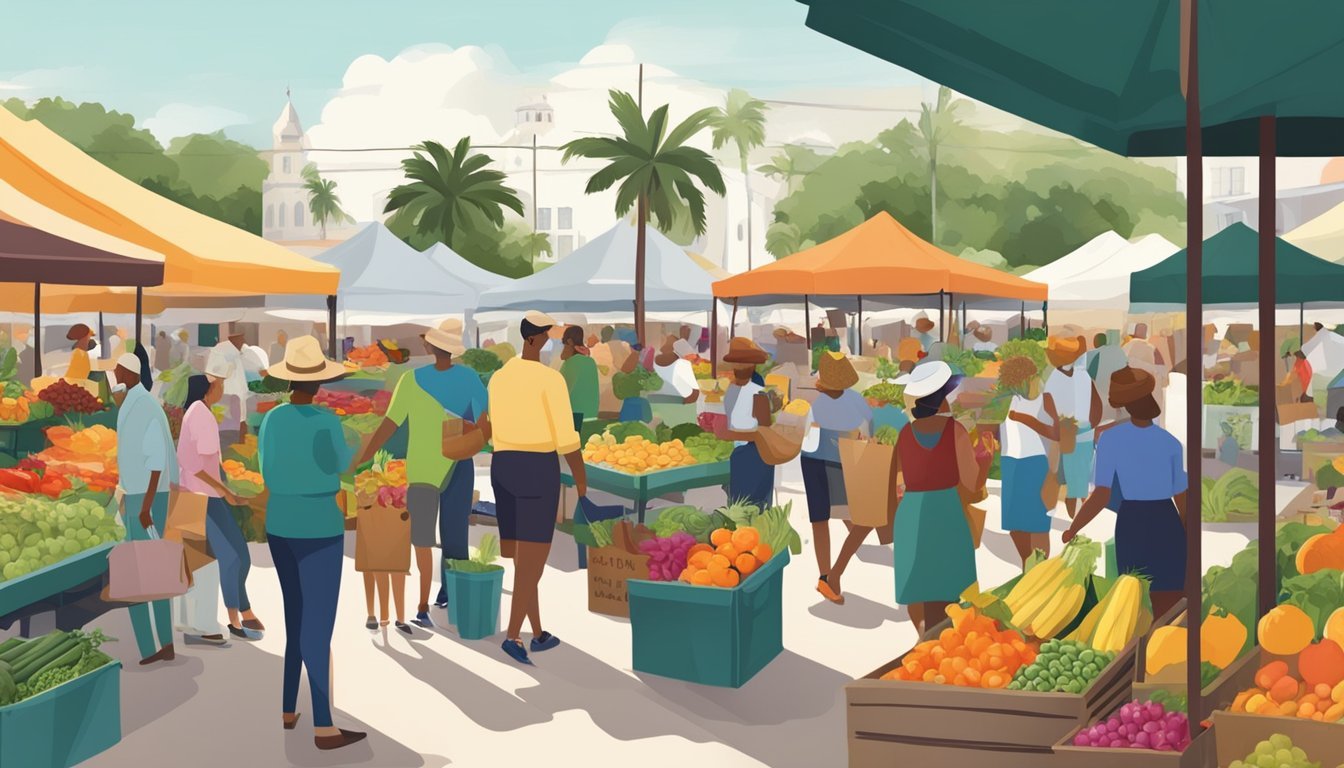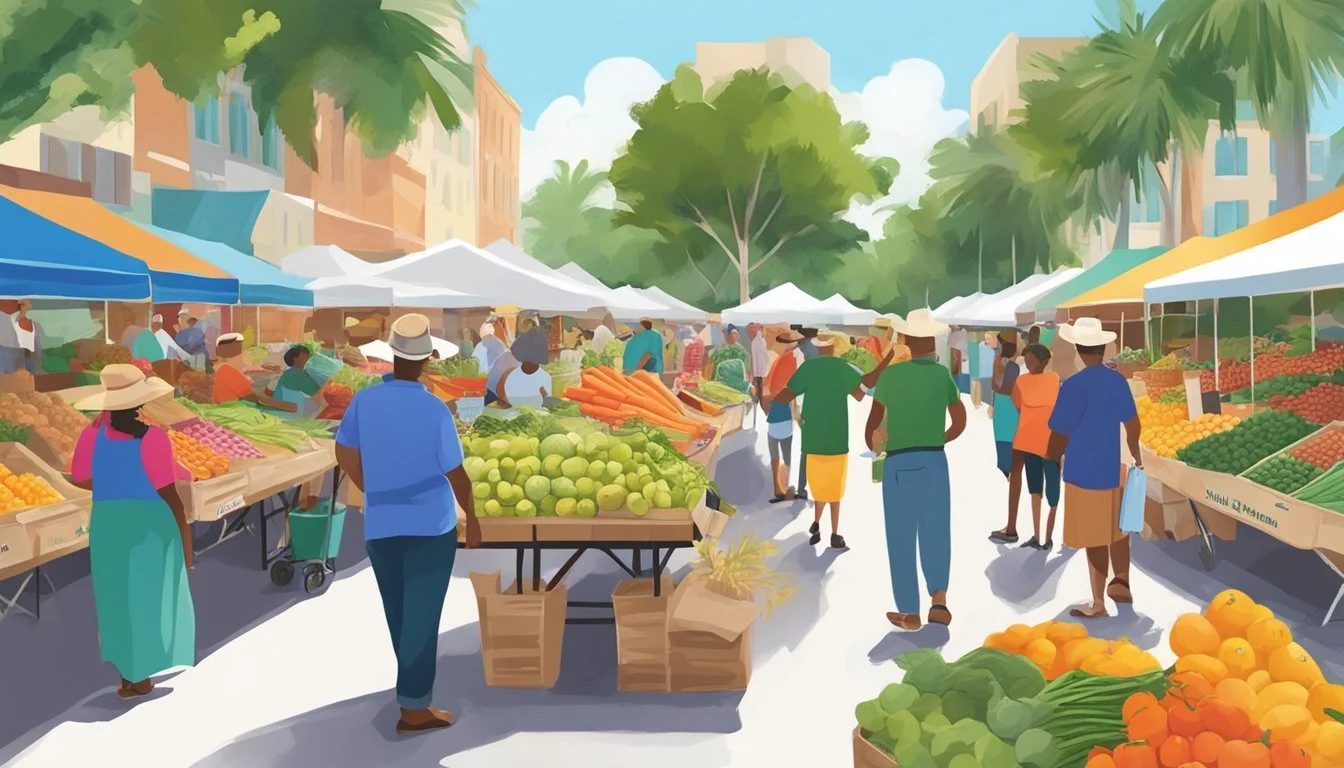Community Supported Agriculture (CSA) in West Palm Beach, FL
A Guide to Local Farm Shares
Community Supported Agriculture, commonly known as CSA, has established itself as a sustainable food source in West Palm Beach, Florida. This innovative model of farming and food distribution connects the residents with local farms, allowing consumers to subscribe and receive regular deliveries of fresh produce. In essence, CSA members make a pledge to support local farms, and in return, they enjoy a variety of seasonal produce directly from the source.
In the diverse agricultural landscape of South Florida, CSAs play a pivotal role in promoting local and seasonal eating. Farmers in and around West Palm Beach offer shares to the public, which often include not only vegetables but may also feature fruits, eggs, meats, and other farm products. The CSA model in the region adapts to the unique growing seasons, offering subscriptions at various points throughout the year, often culminating in weekly boxes of fresh harvests that support both the local economy and agricultural community.
The participation in a CSA fosters a closer connection between consumers and their food sources, promoting an understanding of where and how their food is grown. It's an investment in local agriculture that entails both the rewards of high-quality, fresh produce and the risks inherent in farming, due to weather and other variable conditions. This shared commitment has helped nourish a thriving community around West Palm Beach's local food system.
Understanding CSA
Community Supported Agriculture, or CSA, represents a model where individuals commit to supporting local farms, ensuring mutual support between the community and food producers. Through membership, individuals share in the risks and rewards of farming.
History and Principles
Initiated in the 1980s, CSA began as a response to growing concerns about sustainable agriculture and the disconnect between consumers and the source of their food. Its central principles include shared risk, where members pre-purchase a season's worth of agricultural output, securing financial support for the farmers regardless of crop yield. Another key element is mutual support, reflecting a partnership where farmers and consumers are jointly invested in the production and consumption of locally grown food. This relationship goes beyond a simple purchase; it is a commitment to one’s local agricultural community and sustainable practices.
CSA Model Explained
How Does CSA Work?
Membership Enrollment: Customers buy "shares" in a farm's upcoming harvest.
Seasonal Harvests: Shares typically include a variety of fresh produce, varying with the season.
Distribution: Members receive their share often on a weekly basis, with pick-up locations being set or home delivery provided.
Key Components of a CSA Share:
Vegetables and Fruits: A variety of locally grown, seasonal produce.
Additional Products: Some CSAs include other farm products like eggs, dairy, or meat.
Through the CSA model, members actively support local farming operations, effectively contributing to the resilience and sustainability of local food systems. It is important to understand that members are part of the agricultural process, sharing both the bounties and any potential risks, such as poor harvests due to unfavorable weather conditions.
Benefits of Joining a CSA
Joining a Community Supported Agriculture (CSA) program in West Palm Beach, FL, offers several advantages to both consumers and local farms. Participants often experience fresher produce than what’s available in traditional retail outlets, enjoying the taste and nutritional benefits of organic produce right at its peak.
For Consumers:
Access to Fresh Products: Members receive a weekly share of fresh fruits and vegetables, often picked within 24 hours of delivery.
Health Benefits: Regular consumption of local food can lead to a healthier diet, with the inclusion of more seasonal, ripe produce in meals.
Education: CSAs often inform participants about how their food is grown, fostering a deeper understanding of sustainable practices.
Pros for Environment Description Reduced Carbon Footprint Local distribution means less transportation, leading to lower greenhouse gas emissions. Support for Sustainable Farming Organic farming methods used by many CSAs are typically gentler on the earth, safeguarding biodiversity.
For Local Farms:
Financial Security: Upfront payment for CSA memberships provides farms with early season capital to help with the planting and growing processes.
Market Stability: A direct connection with consumers creates a stable demand for their products, buffering against the unpredictability of farmers markets.
Community Connection: Farms can establish a close relationship with their local community, educating them on the importance of sustainable agriculture.
In essence, CSAs in West Palm Beach are a bridge between local consumers and farmers, enhancing the resilience of local food systems while contributing positively to environmental health.
Finding CSA Programs in West Palm Beach
In West Palm Beach, Florida, individuals looking to participate in Community Supported Agriculture (CSA) have several options to consider. These programs allow consumers to buy local, seasonal food directly from farmers, fostering a closer relationship between the food they eat and the land it comes from.
LocalHarvest is an excellent starting point for those interested in joining a CSA. At LocalHarvest.org, users can find CSA farms near West Palm Beach by entering their location. LocalHarvest lists CSA options, such as the Southern J Ranch, which has been in operation in Palm Beach County for three generations. This ranch offers a variety of products, including native Florida Wild Everglades Tomato seeds and plants.
Prospective members can also find information through local food directories. Market managers in the area may provide resources to help locate CSA shares that include not just vegetables, but other farm products as well.
To facilitate the search for a suitable CSA, here is a simple list of steps to follow:
Visit LocalHarvest.org and search for CSAs in West Palm Beach, FL.
Review the offerings of each CSA, as they may provide a diverse range of products, from vegetables to meats and poultry.
Contact the farmer or market manager listed for further details on share options, pick-up locations, and start dates for the season.
Residents can also explore farmers' markets and farm stands for additional local produce. These venues sometimes offer details about ongoing CSA programs and how to become a member. They play an integral role in the local food ecosystem, connecting consumers with fresh, locally-grown foods.
What to Expect as a CSA Member
When individuals embark on a Community Supported Agriculture (CSA) membership in West Palm Beach, FL, they enter into a symbiotic relationship with their local farmers and the farm operation. Members can anticipate receiving a portion of the farm's harvest, commonly referred to as shares. These shares often consist of a variety of seasonal produce appropriate to the Florida climate, frequently including fruits, vegetables, and herbs.
Subscriptions to a CSA typically run on a seasonal or yearly basis. Patrons should be prepared to pay for a full season's worth of produce upfront. This upfront payment supports the farm's operational costs and signifies a shared risk and reward between the members and the farmer.
A typical share box from a West Palm Beach CSA might include:
Fresh vegetables such as tomatoes, peppers, and leafy greens
Citrus fruits and other seasonal specialties
Herbs like basil or cilantro
Eggs, milk, cheese, meat, or honey may be a part of some CSA shares or offered as additional options
Members should expect variation in their weekly share, reflecting the natural ebb and flow of farm operation; the contents are subject to change due to weather and other environmental factors impacting growth and harvest.
In embracing the nature of seasonality, members are encouraged to be open to trying new vegetables and recipes, as the CSA experience is not only about food consumption but education and connection with the source of one's food. Regular newsletters, farm updates, or invitations to farm events are additional benefits members might receive, fostering a community centered around sustainable agriculture.
The Role of Local Farmers
Local farmers in West Palm Beach are the cornerstone of the area's Community Supported Agriculture programs, establishing a direct link between the growers and consumers.
Supporting Local Agriculture
Local farmers are integral to the sustainability and growth of CSAs. They commit to providing seasonal farm products directly to members, ensuring freshness and quality. These agripreneurs innovate in the cultivation of a variety of produce, often including:
Vegetables
Fruits
Herbs
Dairy products
Meat and poultry
By participating in farmers' markets and establishing CSAs, they enable community members to "Find Your Farmer", as emphasized by resources like LocalHarvest, which connects them to their local food sources.
Challenges Faced by Farmers
Despite their pivotal role, local farmers face multiple challenges. Market fluctuations, climate change, and the pressure to maintain soil fertility affect their ability to produce consistent yields. They also grapple with:
Access to markets: While farmers' markets provide an avenue for sales, competition and market saturation can pose difficulties.
Financial pressures: Upfront costs for seeds, equipment, and labor require significant investment, with payoffs that are not always immediate or guaranteed.
CSAs help mitigate some of these issues by securing a dedicated customer base and providing farmers with advance capital through membership fees. This symbiotic relationship supports local agriculture, despite the challenges these dedicated growers face.
Community Involvement and Education
Community Supported Agriculture (CSA) programs in West Palm Beach, FL have become integral to local food education, supporting both consumers and producers in a direct partnership. CSA members gain unique insight into agricultural processes and have opportunities to engage in a variety of educational initiatives.
Educational Programs: Many CSAs offer instructional sessions on topics ranging from sustainable farming practices to the nutritional benefits of seasonal eating. They encourage community involvement by hosting workshops and field days, where members can learn about and assist with planting or harvesting local produce.
Cooking Demonstrations: To enhance the CSA experience, some farms conduct cooking classes. These sessions often focus on using the seasonal ingredients found in CSA boxes, thus educating members on how to prepare fresh and healthy meals.
Member Involvement:
Volunteer Opportunities: Members are often invited to volunteer on the farm, allowing for hands-on learning about farming operations.
Farm Tours: Regularly scheduled farm tours provide an immersive educational experience into the world of local agriculture.
Newsletters and Recipes: Farms often send out newsletters which include recipes designed for their CSA box ingredients, reinforcing the farm-to-table connection.
Youth Education: An emphasis on involving younger generations has led to the introduction of programs specifically designed for children, instilling early awareness of food origins and sustainable practices.
By participating in CSA programs, members of the West Palm Beach community are empowered with knowledge about food systems, seasonality, and the importance of supporting local farms. This relationship fosters a well-informed public, contributing to a stronger local food economy and a healthier environment.
Economic Aspects and Data
Community Supported Agriculture (CSA) in West Palm Beach, FL, contributes positively to the local economy. By facilitating direct-to-consumer sales, CSAs bypass the traditional supermarket supply chain, reducing transportation costs and associated environmental impacts. Consumers engage with the agricultural process and secure their share of produce, which often leads to a more stable income stream for farmers.
Market Presence: CSA programs in West Palm Beach have carved out a niche market for themselves. They are not aiming to displace supermarkets entirely but offer an alternative that appeals to a segment of the population prioritizing freshness, local produce, and sustainability.
Economic Data:
Number of CSAs: The exact number of CSA operations within West Palm Beach fluctuates seasonally.
Average Subscription Cost: Prices per season vary, often depending on the variety and quantity of produce offered.
APIs and Technology: Some CSAs are integrating APIs (Application Programming Interfaces) for efficient management of subscriptions and data analysis. It aids CSAs in understanding consumer patterns and tailoring offerings to market demands.
Economic Impact: The impact of CSAs on the local economy extends to:
Supporting local agriculture
Encouraging money circulation within the community
Potentially reducing the 'food desert' phenomenon in urban areas
Local farmers benefit from reduced marketing costs and direct communication with their customer base. They can adjust production based on reliable subscriber data, leading to less waste and higher efficiency. In summary, CSAs are a small but impactful part of the local economy in West Palm Beach, providing a symbiotic relationship between producers and consumers while promoting sustainable agricultural practices.
CSA Management and Marketing
Community Supported Agriculture (CSA) in West Palm Beach is a model of food production and distribution that directly connects farmers and consumers. Management of a CSA often involves a market manager who coordinates between the farmers, the produce, and the shareholders. Effective CSA management ensures that consumers receive fresh, local produce while supporting local agriculture.
Marketing for CSAs typically leverages the community aspect, emphasizing the freshness of the product and the local economic benefits. Tools such as CSAware may be used for CSA management software, which could include an API for integrating with other systems and simplifying processes like online payments, including EBT options.
For those interested in joining or learning more, the "contact us" feature is a staple on CSA websites, offering a point of communication for prospective members. This fosters a sense of accessibility and community engagement.
Farmers markets in West Palm Beach often collaborate with CSAs, creating a hub for fresh produce and acting as a pickup location for CSA shares. Connecting with a farmers market provides visibility and accessibility for both farmers and consumers.
Here is an example outline of key elements in CSA management and marketing strategies:
Market Manager Responsibilities:
Coordinate with local farmers
Manage distribution and pickup points
Handle member subscriptions and payments
Marketing Strategies:
Use community-focused messaging
Promote benefits of supporting local farms
Highlight freshness and quality of produce
Technology in CSA:
Utilize CSA management software like CSAware
Integrate API for seamless system operations
Ensure online platforms are user-friendly
Incorporation of technology and innovative marketing is crucial in maintaining the health and growth of the CSA model. As CSAs continue to gain popularity, smart management and strategic marketing remain key components of success.
Potential Limitations and Considerations of CSA
Consumer Expectations: In West Palm Beach, Community Supported Agriculture (CSA) may come with specific consumer expectations which, if unmet, could be seen as a limitation. Subscribers often anticipate a diverse array of produce each week and may be disappointed if the variety is not to their liking or if items are repetitive. Flexibility and open-mindedness are essential when embracing the CSA model, as members receive the produce that is in season and available.
Weather Constraints: Weather plays a critical role in the success of a CSA. In Florida's climate, excessive heat or storms can damage crops, leading to potential inconsistencies in delivery and quality. Any unforeseen weather event can affect not only the yield but also the variety of produce available for members, thereby impacting consumer satisfaction.
Delivery: Delivery logistics can be a constraint for a CSA. In West Palm Beach, the coordination of drop-off points or home delivery schedules requires careful planning. Distance and travel time may affect the freshness of the produce, and organizing a convenient delivery system that satisfies all members can be challenging.
Consideration Why it Matters Consumer Expectations Varied preferences and expectations may not align with seasonal availability. Weather Constraints Florida's weather can unpredictably impact crop production and harvest timelines. Delivery Efficient distribution while maintaining produce quality is essential for member satisfaction.
These considerations should be duly noted by both prospective CSA farmers and consumers in West Palm Beach to ensure an understanding of the challenges and realistic expectations of the CSA model.
Exploring Alternative Local Food Systems
The local food movement in West Palm Beach, FL, gains momentum through Community Supported Agriculture (CSA) initiatives. These systems are integral to the region’s farm-to-table ethos, ensuring that consumers have access to fresh, locally-sourced produce. CSA models enable residents to purchase subscriptions for regular shares of a farm’s harvest, fostering a direct connection between consumers and growers.
Local farms engage in cultivating a variety of crops including microgreens, a nutrient-packed food gaining popularity. Alongside these, farms often offer a range of fresh spices and seasonal local produce, enhancing flavor profiles in home kitchens and restaurant dishes alike.
Here is a brief overview of West Palm Beach's alternative local food systems:
Farmers Markets: A place to find diverse local produce, directly from the source.
Family Farms: Offering CSAs, farm stands, and the opportunity to pick your own produce.
CSAs: Subscribers receive a weekly share of the harvest, which might include fruits, vegetables, and even animal products.
This alternative network not only provides fresh options for consumers but also shores up the local economy. It emphasizes sustainability and supports the mutual pact between farmers and consumers—the core of the CSA philosophy. By participating in these systems, the residents of West Palm Beach contribute to a more resilient and connected community food web.
Conclusion
Community Supported Agriculture (CSA) stands as a beacon of sustainability in West Palm Beach. Local farmers benefit greatly from this system as they receive predictable revenue and support from the community. In return, members of CSAs gain weekly or bi-weekly shares of fresh, locally-grown produce, forging a strong connection to their food sources.
The success of CSAs in the West Palm Beach area is underpinned by the mutual commitment between residents and farmers to uphold the principles of sustainability and community resilience. Participation in a CSA provides residents a direct avenue to contribute to the local economy and the environmental well-being of their region.
Key Benefits for Community Members:
Freshness: Access to seasonal produce at peak flavor and nutritional value.
Knowledge: Increased understanding of seasonal cycles and farming challenges.
Advantages for Farmers:
Stability: Pre-season funding from community members.
Engagement: Deeper relationship with consumers.
In essence, CSAs exemplify a model of food distribution that promotes ecological balance and community cohesiveness. While West Palm Beach's vibrant farming scene thrives, its citizens have a unique opportunity to invest in a system that aligns their dietary habits with the ethos of sustainability and local prosperity.

